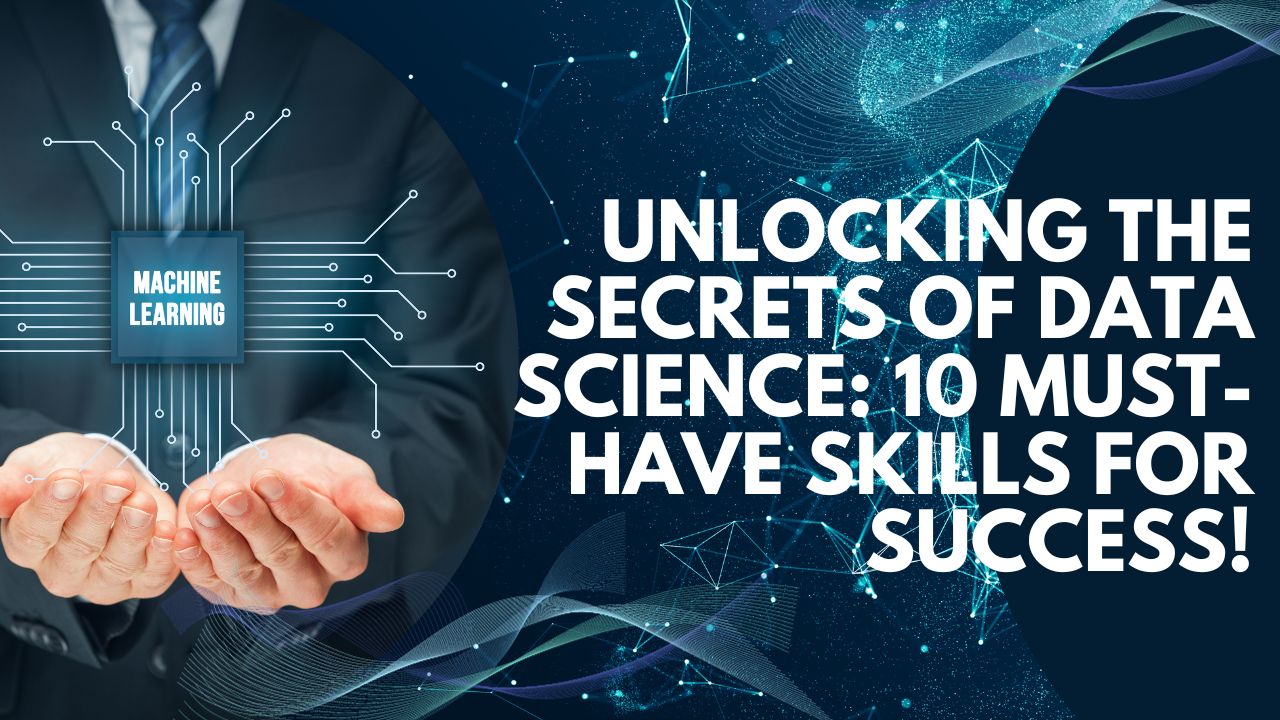In today’s data-driven world, where organizations are accumulating enormous amounts of information, data science has emerged as a crucial field. By harnessing the power of data, professionals in this domain can unlock hidden insights and make informed decisions.
However, to excel in the field of data science, individuals must involve techniques like maximum likelihood estimation, examining data distributions, and conducting statistical tests. Their findings and advice play a crucial role in shaping important business decisions. In this article, we will delve into the ten must-have skills that are essential for success in data science.
2. Data Manipulation and Analysis
5. Machine Learning Algorithms
1. Statistics and Probability
A strong foundation in statistics and probability theory forms the backbone of data science. Proficiency in statistical analysis enables data scientists to understand complex data patterns and draw accurate conclusions.
By applying probability theory, these professionals can make predictions and assess the likelihood of different outcomes.
2. Data Manipulation and Analysis
Data manipulation and analysis skills are essential for tackling the vast amounts of data available. Data scientists must be proficient in using programming languages like Python or R to extract, transform, and clean datasets.
They should be familiar with data manipulation libraries and techniques, such as Pandas, to enhance data quality and facilitate efficient analysis.
3. Programming Proficiency

Data scientists must possess strong programming skills to effectively utilize tools and frameworks. Proficiency in programming languages like Python, R, or SQL allows them to write efficient code, automate processes, and build models. Additionally, the ability to work with APIs and extract data from various sources is crucial in a data scientist’s repertoire.
4. Data Visualization
The ability to effectively communicate insights is vital in data science. Data visualization enables professionals to present complex information in a clear and concise manner.
Proficiency in tools like Tableau or matplotlib allows data scientists to create intuitive charts, graphs, and interactive dashboards that facilitate better decision-making.
5. Machine Learning Algorithms
Machine learning algorithms are the driving force behind many data science applications. A solid understanding of various machine learning techniques, such as regression, classification, and clustering, empowers data scientists to build predictive models and uncover valuable insights.
Familiarity with popular libraries like scikit-learn or TensorFlow enhances their ability to implement and optimize these algorithms.
6. Big Data Tools
As data continues to grow exponentially, data scientists must be well-versed in big data tools and technologies. Proficiency in frameworks like Hadoop or Apache Spark enables the processing and analysis of large datasets distributed across multiple machines.
Knowledge of distributed computing and data storage techniques equips data scientists to handle big data challenges efficiently.
7. Domain Knowledge
To truly unlock the secrets hidden within data, data scientists must possess domain knowledge specific to their industry. Understanding the underlying principles and trends in fields like healthcare, finance, or marketing allows data scientists to derive meaningful insights and make impactful recommendations.
Acquiring domain knowledge enhances the accuracy and relevance of their analyses.
8. Data Ethics and Privacy
Data scientists play a significant role in ensuring the ethical and responsible use of data. They must understand the legal and ethical implications surrounding data collection, storage, and usage.
By prioritizing data privacy and following ethical guidelines, data scientists build trust with stakeholders and contribute to maintaining data integrity.
9. Problem-Solving Skills
Data scientists must be adept problem solvers, capable of addressing complex analytical challenges. The ability to identify the right problem to solve, break it down into manageable components, and devise analytical solutions is crucial.
Effective problem-solving skills enable data scientists to navigate through uncertainties and provide data-driven recommendations.
10. Continuous Learning
Data science is an ever-evolving field, and to stay ahead, professionals must embrace continuous learning. The ability to adapt to new tools, techniques, and industry trends is vital.
By actively seeking new knowledge and staying up-to-date with the latest advancements, data scientists can expand their skill sets and remain competitive in this dynamic field.
Conclusion
In the dynamic realm of data science, acquiring these 10 essential skills is your roadmap to success. It’s a blend of statistics, programming, and domain knowledge that defines this field. Whether you’re starting or advancing, remember that data science is ever-changing.
Embrace continuous learning and adaptability, for these qualities will drive your excellence in this world of data-driven decision-making. As the data landscape evolves, you are well-prepared to meet its challenges, innovate, and shape the future of data science.

Comments
0